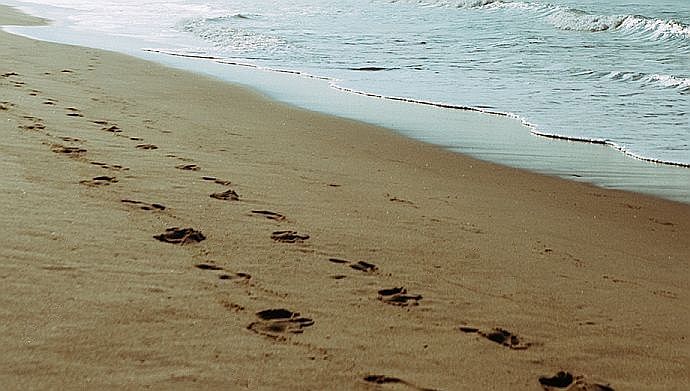|
 One Foot In Front Of The Other
One Foot In Front Of The Other
|
|
There's no
point
in comparing what
Werner Erhard
says, to what Confucius says. That's not
why
I've
quoted
them both. To compare (that is to say to automatically,
knee-jerkingly compare anyone to anyone and / or
anything to anything) is an oft-undistinguished
hijacking
by
the mind.
It's rampant. It
happens
when we shy away from distinguishing things
the way
they are. "This reminds me of that" is
always from
the mind,
never from the
being.
In regard to what people say, what's more useful is to
differentiate between those people whose
languaging
describes
the world
ie people whose
languaging
talks about
the world,
and those people whose
languaging
recontextualizes
(I
love
that
word)
the world.
That's effectively
the way
to differentiate
language
with a
word-to-world
fit (to describe, to talk about) from
language
with a
world-to-word
fit (to generate, to
recontextualize).
It's a very useful distinction to make - not because it makes one
type of person better than another (which it doesn't)
and not because it makes one type of saying better than another
(which it isn't) but rather because it brings forth the mostly
hidden
power
of
language
to shape the quality of life, and to set up
actions
which impact life rather than merely
react
to it.
Confucius is on to something when he says "It does not matter how
slowly you go ...". But he may be imposing an unnecessary
distraction / interpretation by adding "... as long as you don't
stop".
Listen:
it's OK to
stop.
You can
stop.
You don't have to not
stop.
Try this on for size:
the only thing you
have to do? is die.
|

